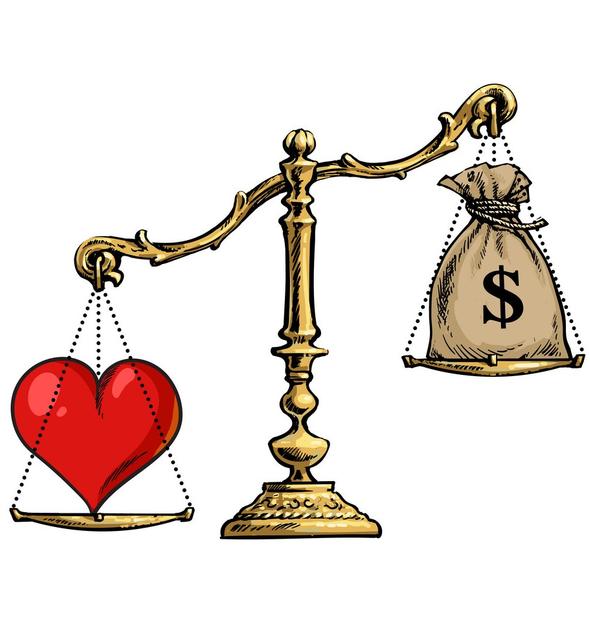
You have a relationship with money in the same way that you have a relationship with your partner. These relationships cannot help but impact each other. Even though a couple might excel at figuring out most life issues together, one important issue that is often overlooked is money. And, income disparities between partners can create even more conflict.
Money is rarely discussed in the early stages of a new relationship. But especially when partners have wealth and income inequalities, this discussion needs to happen. In some cases, the inequality can even force a couple to have the money talk sooner and increase the chances for a successful relationship.
Of course, the couples’ success relies more on the emotional aspects than the actual numbers. Both partners need to feel comfortable with the financial inequality and must find ways to feel on an equal footing in all facets of the relationship.
What may be more important than how much or how little money someone has is that person’s attitude towards money. Potential partners should definitely find out early in the relationship whether they are money-compatible. If they are planning to spend a life together, they will be making many financial decisions together, large and small.
You have to talk. You need to exchange solid information, i.e., the numbers. You have to talk about money. This is the only way to navigate the awkwardness of uneven earnings or assets. In fact, this is the only way to navigate the business part of any romance.
For many people, finances are an overwhelming topic. It might be helpful to enlist the services of an objective third party like a CFP certificant or other helper.
Try to gain insight into the other person’s financial perspective. Conflicting habits can cause real trouble, but understanding them is the important first step. “People are lucky if they have a partner who has the same ideas that they do,” according to Professor Rachel Sherman, a sociology professor at the New School for Social Research in New York. Accept your differences but you do not have to accept poor financial behaviors like hiding debt.
I don't think income matters as much as having compatible habits and goals,” said certified financial educator Maggie Germano. 'Even folks who make lots of money can have conflicts if the money isn't going towards things that they agree on. It's important to be aligned with your partner about what you will be spending money on or saving for.'
Remember, this is only the beginning. This is not a one-time conversation. You also need to discuss future scenarios that might affect your financial life together. For example, how will you pay for college for your children or for eldercare for yourselves?
There is no one right way to be financial partners. What works for one couple may not work for another. However, there should not be a ‘financial spouse’. One person can handle the household finances but with full transparency to and input from the other ‘non-financial spouse’. Make those financial decisions together.
Consider other contributions besides financial. Appreciate your partner for what he or she brings to the relationship. Each has a role to play and not everything involves money.
Remember, life changes in an instant. Today’s high salary could be gone tomorrow as a result of a job cut due to a company reorganization. So, most importantly, enjoy your money together. Set aside some money after the essentials – including savings – are covered to spend time together doing things you both enjoy and look forward to.
“A wise person should have money in their head, but not in their heart …” Jonathan Swift
Sources: PNC.com, Kahler Financial Group, OppU, New York Times, Three Ways to Feel Financially Equal Even When You’re Not
